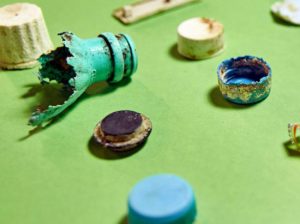The organisation that became the ICRC was founded in Geneva over 150 years ago, and has grown into a global organisation which is constantly expanding its activities while remaining true to the Swiss values that inspired it.After Henri Dunant, a Geneva businessman, had seen the devastation of the Battle of Solferino in Italy, he published a book calling for improved care for wounded soldiers in wartime. So an International Committee for Relief to the Wounded was convened in 1863 and persuaded governments to adopt the first Geneva Convention which obliged armies to care for wounded soldiers, whichever side they were on. It also introduced an emblem for the medical services: a red cross on a white background.National Societies were formed in nearly every European country, and in 1876 the
Read More »Articles by Jessica Martin
Weekly View – Europe’s “black hole”
April 23, 2019The CIO office’s view of the week ahead.Positive economic data has sent relief through markets, with encouraging news coming out of the world’s two biggest economies. The Chinese economy grew faster than expected in the first quarter, as the government’s stimulus policy begins to take effect. In the US, a rebound in consumer spending resulted in retails sales posting their biggest gain since 2017 in March. However, as astronomers published the first image of a black hole, the European economy remains a bit of a black hole itself, with persistently weak Purchasing managers’ indices (PMI) in the euro area’s manufacturing sector. Providing some reassurance is the European services sector, where PMIs are still in expansion territory, implying that the domestic economy is in solid
Read More »Style and status are hallmarks of high-end brands
April 15, 2019Consumers increasingly spend more on luxury experiences and less on luxury goods, and are developing an appetite for novel benefits when buying high-end products and servicesWhen people talk about Swiss brands, they often think about the luxury products and services for which the country is justly famous – its watches, jewellery, chocolates and deluxe hotels, for example. Over the last decade, my own research and teaching activities at INSEAD have taught me that decoding luxury consumption patterns requires a move away from the overused term ‘luxury’ and a deep dive into the inner socio-psychological drivers underlying how consumer think, feel and behave towards the high-end and high-quality products so core to what Swiss brands really stand for.Two concepts remarkably explain brand
Read More »The future of cities
April 16, 2018The digital revolution has launched a wave of innovation in the world’s cities, says MIT’s Carlo Ratti, providing opportunities to improve urban mobility and create better workspaces for the changing nature of work.These are exciting times for cities, according to Carlo Ratti, Director of MIT’s Senseable City Lab and co-founder of Carlo Ratti Associati architecture studio. Although they occupy just 2 per cent of the Earth’s surface, they are home to more than half the world’s population, account for 75 per cent of energy consumption and generate 80 per cent of CO2 emissions. But digital technology, which is disrupting many traditional dimensions of the urban way of life, is creating a wave of innovation to reflect the needs of modern cities.During the last decade, digital technologies
Read More »Eliminating the ocean’s garbage patches
May 16, 2017Published: Tuesday May 16 2017Youthful entrepreneur Boyan Slat is pioneering a technology to remove the millions of tons of unsightly plastic trash floating on the surface of the world’s oceans, which endangers marine species and pollutes the human food chain.The five plastic garbage patches circulating in the world’s largest oceans have long been seen as a threat to marine life which is poisoned by this persistent material or becomes entangled in it. It also introduces organic pollutants such as PCBs and DDT into the food chain of three billion people. Yet removing the plastic with ships and nets is a lengthy and prohibitively expensive business.However, new technologies have been developed by a Dutch foundation to rid the oceans of millions of tons of plastic by harnessing their currents so that they effectively do most of the job themselves. The Ocean Cleanup, founded in 2013 by an 18-year-old student, plans to launch its pilot in Pacific waters by the end of 2017, which will be tested and refined until a fully operational system is completed. ‘Big problems require big solutions, and it will take hundreds of millions of dollars to clean the oceans,’ says Boyan Slat, founder and Chief Executive of The Ocean Cleanup. ‘Computer simulations predict a 100 km installation can remove half the Great Pacific Garbage Patch in 10 years.
Read More »

